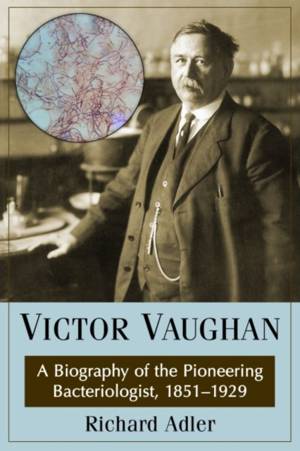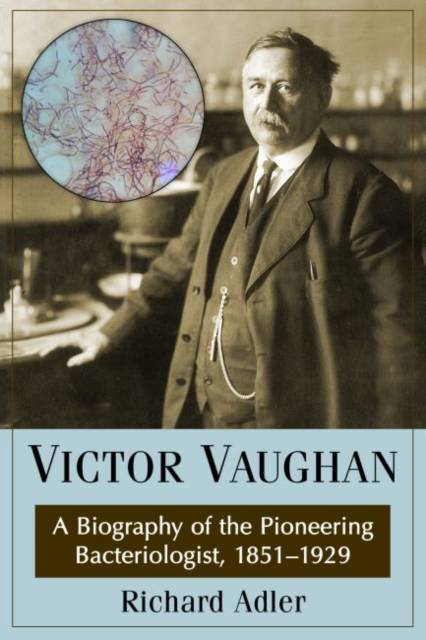
- Afhalen na 1 uur in een winkel met voorraad
- Gratis thuislevering in België vanaf € 30
- Ruim aanbod met 7 miljoen producten
- Afhalen na 1 uur in een winkel met voorraad
- Gratis thuislevering in België vanaf € 30
- Ruim aanbod met 7 miljoen producten
Victor Vaughan
A Biography of the Pioneering Bacteriologist, 1851-1929
Richard AdlerOmschrijving
Victor Vaughan's career at the University of Michigan spanned more than four decades, beginning with his graduate studies in physiological chemistry during the 1870s and ending in 1921 with his retirement after three decades as dean of the medical school. Not only was he instrumental in modernizing medical training at Michigan, his work in areas of hygiene, epidemiology and the study of toxins and infectious disease was highly regarded on the national scene.
Twice he was called upon to serve his country in times of crisis. During the Spanish-American War he was a key member of the Typhoid Commission which investigated the outbreak of the life-threatening fever among army recruits in southern camps. During World War I, he was a member of the medical board within the Council of National Defense which contended with an unprecedented influenza outbreak.
Vaughan's professional work included more than 250 published papers and some 17 books, many outlining laboratory techniques that modernized the newly evolving field of bacteriology.
Specificaties
Betrokkenen
- Auteur(s):
- Uitgeverij:
Inhoud
- Aantal bladzijden:
- 220
- Taal:
- Engels
Eigenschappen
- Productcode (EAN):
- 9780786495993
- Verschijningsdatum:
- 15/12/2014
- Uitvoering:
- Paperback
- Formaat:
- Trade paperback (VS)
- Afmetingen:
- 177 mm x 225 mm
- Gewicht:
- 303 g

Alleen bij Standaard Boekhandel
Beoordelingen
We publiceren alleen reviews die voldoen aan de voorwaarden voor reviews. Bekijk onze voorwaarden voor reviews.







